![]() It has been a year since Rodrigo Duterte assumed the presidency of the Philippines. Davao’s favorite son began his reign on the offensive, going on a killing spree that would claim the lives of over 7,000 suspected drug users in the next 12 months. He ended his first year uncharacteristically on the defensive, removing himself from the public eye for almost a week as the Philippine Army repeatedly tried but failed to dislodge the so-called Maute Group that had taken over and terrorized Marawi, the cultural capital of Islam in the Philippines.
It has been a year since Rodrigo Duterte assumed the presidency of the Philippines. Davao’s favorite son began his reign on the offensive, going on a killing spree that would claim the lives of over 7,000 suspected drug users in the next 12 months. He ended his first year uncharacteristically on the defensive, removing himself from the public eye for almost a week as the Philippine Army repeatedly tried but failed to dislodge the so-called Maute Group that had taken over and terrorized Marawi, the cultural capital of Islam in the Philippines.
A month earlier, everything seemed to be going Duterte’s way. Using the Maute takeover of Marawi as an excuse, he finally delivered on his threat to declare martial law, which he had made several times over the last few months. The Mautes’ move had been in response to a failed attempt by the Philippine military to apprehend a much-wanted leader of the notorious Abu Sayyaf terrorist organization, to whom the group is allied, who was believed to be in the area. Duterte’s response – the declaration of martial law for the whole of Mindanao, the Philippines’ second largest island, to address a local incident – struck many as a case of overkill.
![]()
To some other observers, however, Duterte’s move was not surprising, given that he had not hidden his intention to follow in the footsteps of his hero, Ferdinand Marcos, should the situation, in his judgment, require the imposition of martial law. In their view, Duterte saw the incident as an opportunity to take a step forward in his drive to consolidate authoritarian rule, much like Marcos had used a staged attack on one of his key subordinates as the pretext for his infamous move almost 50 years ago.
It provided an opportunity for a dress rehearsal for the nationwide imposition of military rule, and in the next few days, things seemed to unfold according to the script desired by the President. Controlled by his allies, Congress evinced no desire to meet in joint session to approve the declaration, as prescribed by the Constitution. Duterte also warned that should opponents of the declaration bring their case to the Supreme Court, he would simply disregard the Court’s decision, a brazen challenge that the Court responded to with silence. (READ: Duterte to follow SC on martial law)
What Duterte did not anticipate was that the Mautes would hold on to Marawi, ferociously. As the stalemate continued, with soldiers dying, hundreds of civilians caught in the crossfire, and the ISIS-linked Islamist band extracting maximum propaganda globally for its cause, Marawi threatened to become the Vietnam of his presidency. Not only did it come to light that he had, in his trademark macho fashion, challenged the Mautes to carry through with their threat to burn Marawi to the ground a few months back. (READ: Terror in Mindanao: The Mautes of Marawi)
The takeover exposed the fact that, with his single-minded focus on killing drug users, he had paid absolutely no attention to coming up with a political solution to one of the country’s most pressing problems: the smoldering Moro insurgency in his own region. Now, he had been forced into the dead-end of a military solution with US support, which was precisely what the radical Islamists wanted in pursuit of their dream of making Muslim Mindanao a second front of their struggle to establish a global Islamic caliphate.
The year of killing indiscriminately
Marawi was, however, a rare setback in a year where most things went swimmingly for the man from Davao.
Most Filipinos do not remember having lived through a more tension-filled, nerve-wracking year since the overthrow of the dictatorship over 3 decades back. Unlike most politicians, Duterte delivered on his main promise, which he had described as “fattening the fish in Manila Bay” with the cadavers of criminals. Thousands of drug users have been slain either by the police or by police-controlled vigilante groups, with the police admitting that 2,600 deaths were attributable to police operations while another 1,400 were the work of vigilantes. Other, more reliable sources put the figure at above 7000 as of early May.
What is beyond doubt is that Duterte has brazenly encouraged the extra-judicial killings and discouraged due process. The very night of his taking his oath of office on June 30, 2016, he told an audience in one of Manila’s working class communities: "If you know of any addicts, go ahead and kill them yourselves as getting their parents to do it would be too painful." In October 2016, Duterte told the country, with characteristically sinister humor, that 20,000 to 30,000 more lives might have to be taken to cleanse the country of drugs. Having learned to take Duterte seriously even when he seems to be joking, many observers expect this figure to be an underestimate. More recently, to any policemen who might be convicted of killing drug users without justification, he has offered an immediate pardon “so you can go after the people who brought you to court.”
![Photo by Alecs Ongcal/Rappler]()
Kraisak Choonhavan, a prominent Thai politician, observed that, in a region where authoritarianism is once more on the rise, the Philippines is in the most perilous position since its authoritarian leader has come to power through a democratic vote. What he meant is that, although democracy may be the least objectionable of systems of rule, when democracy does screw up big time, the damage can be incalculable, greater perhaps than that which comes with the usual military coup, for which the region is notorious.
This is, of course, not the first time that a man determined to dismantle democracy has come to power through democratic means, Duterte’s most prominent predecessor being Hitler, who stepped into the chancellorship of Germany with his plurality victory in the 1932 elections. Like Hitler, Duterte won by a plurality, getting some 40% of the vote in the elections of May 9, 2016, and he has aggressively wielded that electoral mandate as his main instrument in reshaping the Philippine political system, though this process has been carried out less by plan than through improvisation guided by his acute political instincts.
Duterte’s middle class enrages
There is no doubt that he is popular, with over 75% to 83% of the people registering approval of his actions, according to recent polls. While he draws approval from all classes, his support is most aggressively displayed among the aspiring and downwardly mobile middle classes. The Philippines provides an interesting case study of the volatility of the middle class. At times, it can be a force for democracy, as the middle classes were in the late '80s, when they played a central role in the overthrow of Marcos and other authoritarian regimes throughout the global South. At other times, they provide the heated mass base for authoritarian rule, as they did for Hitler in Germany and as they do now for Duterte.
Duterte’s middle class base is not passive. Beginning with the presidential campaign in 2016, they have mobilized to dominate the social media, engaging in the worst kind of cyber-bullying of people who dare to criticize the President’s policies on line. Shortly after his declaration of martial law, for instance, one of the most prominent pro-Duterte bloggers publicly called for the execution of two women journalists. Another Duterte fanatic registered his hope online that a woman senator who had criticized Duterte’s martial law declaration, Risa Hontiveros, would be “brutally raped” by the insurgents in Marawi City. Indeed, rational discourse is an increasingly scarce commodity among Duterte’s partisans, who ape their leader’s penchant for outrageous and incendiary utterances. Perhaps the most appropriate name for them is the French Revolution term “enrages,” or the enraged ones.
Interpreting his mandate as a blank check to do whatever it takes to “defend the nation,” Duterte has reversed the usual model by which fascists and authoritarian populists come to power. In the Marcosian model of “creeping fascism,” the fascist personality begins with violations of civil and political rights, followed by the lunge for absolute power, after which follows indiscriminate repression. Duterte reverses the process. He starts with massive, indiscriminate repression, that is, the killing with impunity of thousands of drug users, leaving the violation of civil liberties and the grab for total power as mopping up operations in a political atmosphere where fear has largely neutralized opposition.
With his declaration of martial law in Mindanao, Duterte is now embarked on the next phase of his ascent to absolute power, which will most likely involve the curtailment and suppression of basic political rights. Like the conquistador Cortez, Duterte has burned his ships behind him. There is no going back. Yielding power when his 6-year term ends is a vanishing option since he would face prosecution for extra-judicial execution of thousands of people, not only locally but internationally, since charges of systematic human rights violations have been filed against him in the International Criminal Court. But the main thing propelling him forward is his sense that his large numbers of supporters, in fact, support his drive toward authoritarian rule.
Duterte: Pharmacologist extraordinaire
Duterte’s signature program has been his war on drugs. This is no ordinary law-and-order campaign. It is being carried out with a fanaticism that borders on the ideological and with a justification that reminds one of the pseudo-scientific basis of Nazi racial theory. A whole sector of society, most of them poor, have been unilaterally stripped of their rights to life, due process, and membership in society. Drug users are consigned outside the borders of “humanity” since their brains have allegedly shrunk to the point where they are no longer being in command of their faculties to will and think.
In his speeches justifying the killings “in self-defense” by police, Duterte said that a year of more of the use of “shabu” – the local term for crystal meth or metamphetamine hydrochloride – “would shrink the brain of a person, and therefore he is no longer viable for rehabilitation.” Not only do these people turn to violent crime to slake their drug habit, but they are “paranoid” and could resist arrest, putting the lives of policemen in danger. Duterte has written them out of the human race. With rhetorical flourish, he asked the security forces a few months ago: “Crime against humanity? In the first place, I’d like to be frank with you: are they humans? What is your definition of a human being?"
Duterte’s bloody campaign defies the consensus in the scientific community, much like Donald Trump brushes away the scientific consensus on climate change. Dr Yao Ying Ma of Binghamton University, one of the world’s leading neuroscientists working on the effects of drugs, said in an interview with the author that while drug addiction does involve modifications of the brain that lead to pathological alterations, this process is reversible, which is not only a theoretical hypothesis, but one that has received substantial confirmation in research laboratories and is broadly accepted in the field of neuroscience.
“Our brains, they are flexible. They have the chance to be reshaped, to be reorganized,” she says. “Through certain medical interventions, we can reorganize the brain back to its normal healthy state.” The focus of therapy is to prevent relapse into substance abuse, and here the problem to be addressed is the mitigation of severe withdrawal pains, the avoidance of which is the reason people go back to the drug. Whether for opiates or for psycho-stimulants, such as meth, such mitigating measures are now available which stimulate the brain to produce and release endorphins that significantly alleviate withdrawal symptoms. Excitingly, vaccines have also been developed to block the responsive sites in the brain, leaving drugs with little chance to successfully attack it.
For psycho-stimulants like meth or shabu, there is also now available electronic acupuncture or “peripheral electrical stimulation,” which ameliorate withdrawal symptoms, allowing drug users to, among other things, overcome lack of sleep, which most complain of, increasing the chances of a patient not relapsing. While neuroscientists like Ma see addiction as something to be reversed mainly by treating specific neuro-substrates in the brain, receptivity to a cure is greatly enhanced by a supportive social atmosphere provided by both the community and government. Criminalizing drug users instead of treating drug use as a public health problem creates the worst possible context for rehabilitation.
These complexities of the drug issue are not, however, something that Duterte would entertain. He believes that he is the expert on all dimensions of the drug problem, which he estimated in May of this year as affecting some 4 million Filipinos, up from his earlier estimate of 3 million a few months earlier. The President’s figure would put the percentage of the population that are drug users at over 4%, a figure which not even the chairman of the government’s Dangerous Drugs Board, a Duterte ally, found credible, leading to his being fired by the President when he dared to come up with the alternative figure of 1.8 million drug users.
The revolt against liberal democracy
What is not in dispute is that Duterte’s promise to deal with the drug problem in a draconian fashion was a major factor in his being elected in a society where fear of crime is widespread among all sectors of the population. It is testimony to his political acumen that he was able to successfully latch onto an issue that most politicians had ignored. Yet there are more profound causes for his victory and his current popularity. One cannot understand Duterte’s hold on society without taking into consideration the deep disenchantment with the liberal democratic regime that came into being with the landmark “EDSA Uprising” that overthrew the dictator Ferdinand Marcos in February 1986 – EDSA being the acronym for the north-south highway that bisects Metro Manila, where the major mass actions took place. In fact, the failure of the “EDSA Republic” was a condition for Duterte’s success.
What destroyed the EDSA project and paved the way for Duterte was the deadly combination of elite monopoly of the electoral system, the continuing concentration of wealth, neoliberal economic policies, and the priority placed on foreign debt repayment imposed by Washington. By the time of the elections of 2016, there was a yawning gap between the EDSA Republic’s promise of popular empowerment and wealth redistribution and the reality of massive poverty, scandalous inequality, and pervasive corruption.
Add to this the widespread perception of inept governance and the double standards of the anti-corruption campaign of the administration of President Benigno Aquino III, and it is not surprising that a resounding 16 million plus voters or some 40% of the electorate saw Duterte’s tough guy, authoritarian approach, which he had cultivated as mayor of the southern frontier city of Davao for over thirty years, as precisely what was needed. To borrow the novelist Anthony Doerr’s description of the state of mind of pre-war Germans, a large number of Filipinos were “desperate for someone who can put things right.” The Philippines may be headed toward a dictatorship, but it is, paradoxically, likely to a popular one, anchored in the country’s seething, frustrated middle class.
Ersatz populism
Though much of his rhetoric is populist, Duterte’s approach is not a populist strategy of using the masses as a battering ram for redistributive reform. Rather, his is the classic fascist way of balancing different class forces while projecting an image of being above class conflict. His campaign promises of ending contractual labor, curbing the mining industry, and turning over to small coconut farmers the taxes collected from them by the Marcos regime have remained largely unfulfilled as the country’s key elites have positioned themselves as his allies to protect their interests. All significant labor groups have rejected his labor secretary’s order “banning” contractualization as a cosmetic move with little intended effect. No new legislation to push forward the stalled agrarian reform is entertained, which is not surprising given the fact that the Visayan bloc of landowners in the House of Representatives is one of his most solid backers.
A defining moment in the debate on whether Duterte was serious about a social agenda was the congressional confirmation hearings on his secretary of the environment, Gina Lopez, who shut down 22 mines, suspended 4, and issued show-cause orders to 77 others for encroaching on watersheds and destabilizing rural and forest communities. Her campaign had captured the public imagination, but Duterte’s allies in the mining industry ganged up on her, successfully pressuring the congressional Commission on Appointments not to confirm her, with the President sitting on the sidelines, refusing to personally lobby for her retention when a simple phone call would have made the difference. Duterte is not a tool of vested interests; indeed, many of the rich are scared of him and his unpredictability. But money does have its uses, and it is essential to furthering his authoritarian agenda.
But while delivering social and economic reforms is going to be central in maintaining support for his authoritarian project in the long term, it is unlikely that the lack of progress so far will dent Duterte’s popularity with the masses in the short and medium term. As with Donald Trump’s base, hope springs eternal among a people steeped in frustration and desperation. Moreover, the middle class enrages who dominate the internet are not lacking in the ability to present the illusion of reform as actual reform or in their imputing lack of progress to obstruction by the dilawan, or yellows, which has become the term of choice for all those critical of Duterte.
Civilization’s thin veneer
While Duterte has an effective propaganda machine, it would be a big mistake to attribute his popularity to the work of “trolls” or paid internet keyboard warriors, as many of his critics are wont to do. The support for extra-judicial killings of drug users by large numbers of their compatriots is genuine, and this has perplexed many observers. It has underlined to some “what we see as the unalterable features of civilized life vanish in the blink of an eye,” as the philosopher John Gray puts it. Especially after the EDSA Uprising of 1986, the Philippines was regarded as the “showcase of liberal democracy” in Asia. An influential view was that in overthrowing Marcos, Filipinos were simply reasserting the longstanding value they put on individual rights, due process, and democracy that they had internalized during the American colonial period.
The liberal democratic Constitution of the EDSA Republic – the so-called “human rights Constitution” – was seen as the quintessential crystallization of these national political values. Then suddenly, in the space of less than a year, the majority of Filipinos have expressed strong support for a man whose central agenda is the extra-judicial execution of a certain category of human beings, drug users, with a large number of them not only justifying Duterte’s bloody campaign but cheering him on.
Perhaps it is time we shed assumptions we have of our people as civilized beings and creatures with malasakit or compassion, and adopt toward contemporary Philippine society what the historian Daniel Goldhagen proposed to students of German society during the Nazi period: abandon all assumptions about your people, and instead approach them “with the critical eye of an anthropologist disembarking on unknown shores, open to meeting a radically different culture and conscious of the possibility that he might need to devise explanations not in keeping with, perhaps even contravening his own common-sense notions, in order to explain the culture’s constitution, its idiosyncratic patterns of practice, and its collective projects and products.”
This would admit the possibility that under certain circumstances, large numbers of people, especially from the middle class and elite, are willing to be advocates or accomplices of mass murder in the name of law and order.
The demoralized opposition
![DEFIANT. Senator Leila de Lima waves to supporters before heading to her detention cell in Camp Crame on February 24, 2017. Photo by Alecs Ongcal/Rappler]()
For the moment, opposition to Duterte among the elite and state institutions is weak, and the Catholic Church hierarchy, which in the past was a strong advocate of human rights, is afraid to frontally take on the popular leader, saddled as it is with a lack of credibility owing to moral erosion in its ranks and its bull-headed, unpopular resistance to family planning. The Liberal Party, which controlled the government under the previous Aquino administration, has disintegrated, with most of its congressional representatives swearing fealty to Duterte.
Formerly in the opposition in previous administrations, the traditional left, as is well known, is now part of the Duterte government, provided with 3 Cabinet-level positions by a wily politician who gambled, correctly, that the left, whose fortunes had been declining in recent years, would bite at the offer. While the Communist Party and the New People’s Army continue to engage in off-and-on negotiations for a peace agreement with the government, the presence of personalities identified with them in Duterte’s Cabinet have provided “progressive” cover for its fascist policies.
What opposition there is comes from isolated figures, like Senator Leila de Lima, the former secretary of justice whom Duterte has jailed on trumped-up charges of being on the payroll of drug lords, from a section of the media, from human rights groups like the coalition I-Defend, and from new, refreshing youth formations such as the “Block Marcos Movement” that was formed to oppose the burial of the former dictator in the National Heroes’ Cemetery.
Duterte and the military
Interestingly, the one institution that could effectively undermine Duterte is the military. The President knows this, and to keep the Armed Forces of the Philippines (AFP) on his good side, Duterte has appointed several former generals to key positions in his Cabinet and takes every opportunity to visit military camps. The military is central to his agenda of imposing martial law nationwide. Yet, it may also prove to be the biggest obstacle.
Contrary to the perception of many, the military does not relish martial law. This is not because it loves civilian rule, but because it is overextended, severely overextended. This is the reason the AFP command was one of the strongest backers of the Bangsa Moro Basic Law, which promised a political conclusion to the nearly 50-year-old Muslim insurgency whose containment has been the military’s main preoccupation. The project collapsed when a US-supported raid into insurgent territory by Philippine police forces authorized by former President Aquino in January 2015 went awry and derailed the negotiations, much to the chagrin of many in the AFP high command.
With only 220,000 frontline troops, the AFP is one of the smallest standing armies in Southeast Asia and one of the most underequipped, having relied for so many years on hand-me-down weaponry from the United States. It has had its hands full battling several major insurgencies. Given its current strength, plus the fact that insurgencies demand principally political, not military solutions, the best it has been able to do is battle these insurgent movements to a stalemate, not eliminate them. Its failure over the last month to retake Marawi City from what some say are scarcely more than a hundred Muslim irregular fighters has drawn attention to its woeful fighting capabilities, with incidents like friendly fire from Philippine Air Force planes killing Philippine Army troops drawing universal dismay. (READ: Marawi battle zone: Urban warfare challenges PH military)
Even as the army is being outfought by Maute irregulars in Marawi, its commander in chief has added a massive new task, which is to perform police functions in a whole region, in preparation for exercising police functions nationwide in his design to establish a nation-wide dictatorial regime. Duterte, say some analysts, has provided a gift to the Communist New People's Army and the different insurgent Muslim groups by releasing AFP units now containing them to assume police functions regionally. This will simply encourage these groups to assume more offensive operations, leading to more AFP casualties.
The surest way to demoralize the military is to overextend it by pushing it to assume political and police functions for which it is ill-equipped. A politicized military that exercises police powers is a plague on the people, but it also stirs discontent and rebellion in its ranks, as happened during the Marcos dictatorship. Duterte fancies himself a general, but he may actually be unintentionally sowing the ground for future coup d'etat's. Like Marcos, he thinks he is riding the tiger, and like him, he may well end up inside it.
The challenge to democracy
To the worried partisans of an endangered democracy, however, the choice between a presidential dictatorship and a military dictatorship is no choice at all. As Duterte’s reign enters its second year, they are faced with a tall order: how to make democracy, human rights, and due process attractive again to a skeptical population. It would be suicidal to allow themselves to be led by personalities associated with the old, discredited EDSA order. The Vice President, Leni Robredo, is a person of undoubted integrity but one devoid of the capacity for effective leadership, being mainly a creation of the Liberal Party capitalizing on the reformist image of her deceased husband. Once seen as a reformist force, the Liberals are damaged goods owing to their opportunism and cowardice, while the vocal Senator Antonio Trillanes IV, who wears his burning ambition on his sleeve, has even less credibility than the Liberals.
But beyond personalities, democrats must present a vision and a program that speak to the aspirations of the vast majority of impoverished and marginalized Filipinos and convince them that democratic competition is a more effective means of realizing their hopes than authoritarian rule. Only a party and program of the left can provide this leadership, but with the dominant sections of the left itself having been enmeshed in compromising, corrupt alliances with different factions of the elite, reinvigoration of the democratic alternative will demand a thoroughgoing reform of the left. Crisis, however, can spell opportunity, and Filipino progressives would do well to ponder the words of the great Italian opponent of fascism, Antonio Gramsci, at a not dissimilar moment in his nation’s history: “Pessimism of the intellect, optimism of the will.” – Rappler.com
Walden Bello, currently an international adjunct professor at the State University of New York, made the only recorded resignation-on-principle from the Philippine Congress. He is the author or co-author of 20 books on the Philippines, Asian economies, international political economy, and other topics.
![]()
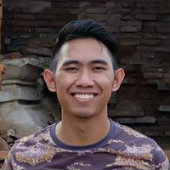
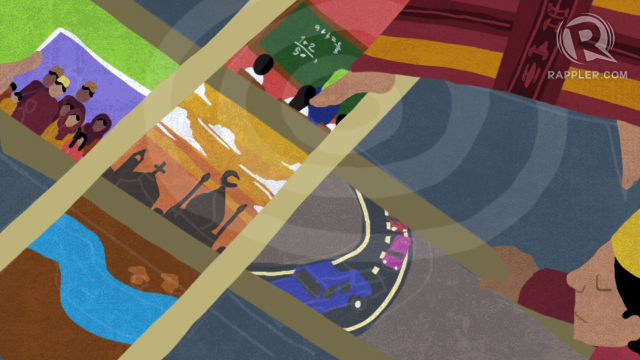
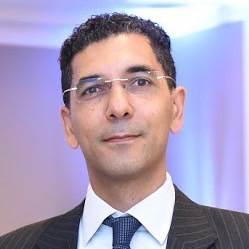



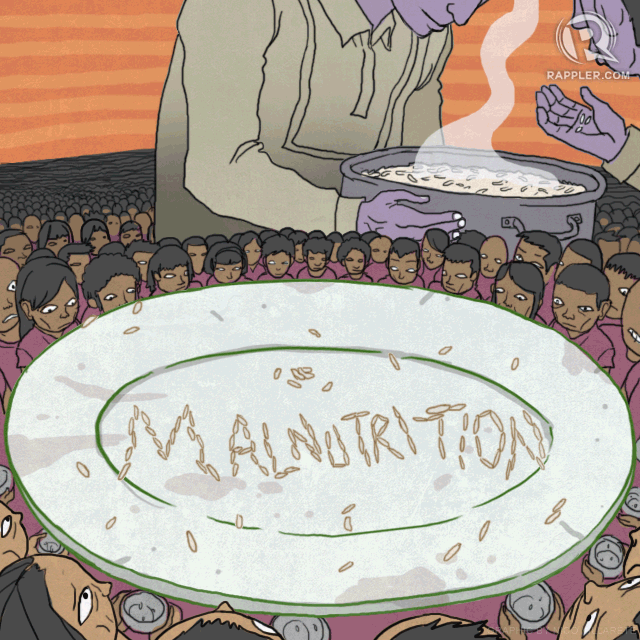
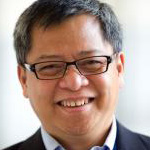 Since the fall of the dictator, anti-authoritarian fears have always revolved around the threat of a new Marcos. In the late 1990s, when then-President Fidel Ramos attempted to amend the Constitution to allow him to seek a second term ostensibly, anti-Marcos forces led by former President Cory Aquino blocked him, declaring they would “never again” allow the law to be manipulated. In the early 2000s, when President Joseph Estrada was surrounding himself with a coterie of cronies, commentators once again warned about the “ghost of Marcos.” Finally, Gloria Arroyo, who placed the Philippines under a “state of rebellion” to dampen protests against her and who aimed to build a centralized “strong republic,” was similarly tainted with a Marcosian brush.
Since the fall of the dictator, anti-authoritarian fears have always revolved around the threat of a new Marcos. In the late 1990s, when then-President Fidel Ramos attempted to amend the Constitution to allow him to seek a second term ostensibly, anti-Marcos forces led by former President Cory Aquino blocked him, declaring they would “never again” allow the law to be manipulated. In the early 2000s, when President Joseph Estrada was surrounding himself with a coterie of cronies, commentators once again warned about the “ghost of Marcos.” Finally, Gloria Arroyo, who placed the Philippines under a “state of rebellion” to dampen protests against her and who aimed to build a centralized “strong republic,” was similarly tainted with a Marcosian brush.
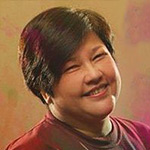


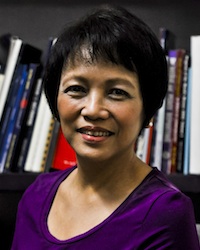








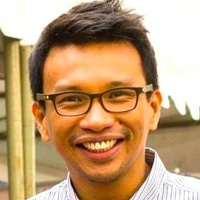 “Ako na po ang nagsasabi: bigyan ninyo ako ng kaunting panahon, I will improve the Moro land, Mindanao.” (I’ll be the one to tell you: give me a little more time, I will improve the Moro land, Mindanao.)
“Ako na po ang nagsasabi: bigyan ninyo ako ng kaunting panahon, I will improve the Moro land, Mindanao.” (I’ll be the one to tell you: give me a little more time, I will improve the Moro land, Mindanao.) 
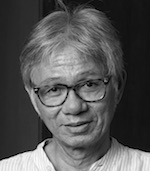 President Duterte felt annoyed at unsympathetic speculations about his disappearance from the public view for some days recently, so annoyed he could not stop himself taking a dig at even a captive target like Senator Leila de Lima.
President Duterte felt annoyed at unsympathetic speculations about his disappearance from the public view for some days recently, so annoyed he could not stop himself taking a dig at even a captive target like Senator Leila de Lima.
 To my fellow graduates and to our esteemed teachers; to our parents, family and dear friends; I would like to begin by greeting all of you with words of peace: "Assalamu’alaikom," or peace be with you.
To my fellow graduates and to our esteemed teachers; to our parents, family and dear friends; I would like to begin by greeting all of you with words of peace: "Assalamu’alaikom," or peace be with you.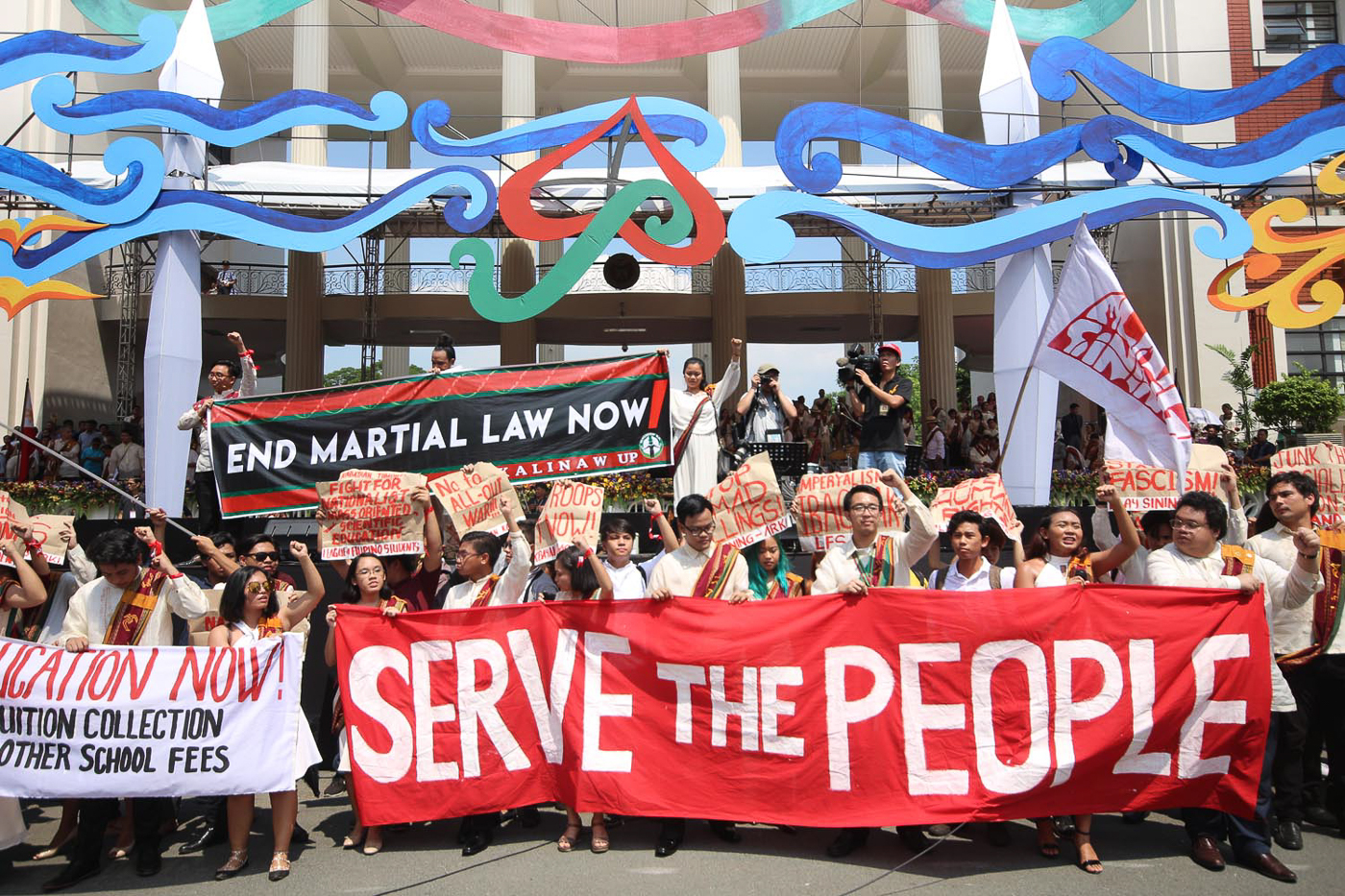

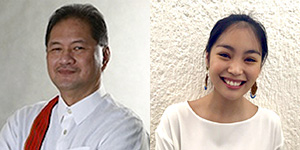

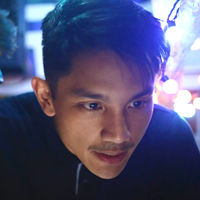

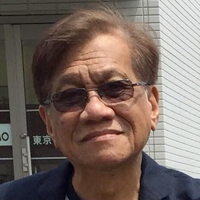 It has been a year since Rodrigo Duterte assumed the presidency of the Philippines. Davao’s favorite son began his reign on the offensive, going on a
It has been a year since Rodrigo Duterte assumed the presidency of the Philippines. Davao’s favorite son began his reign on the offensive, going on a 


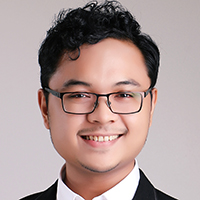 In April the government finally unveiled Dutertenomics as the
In April the government finally unveiled Dutertenomics as the 



